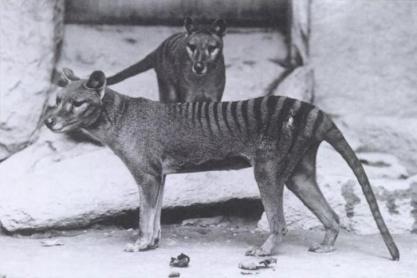



|
We certainly don’t want to add to the list of them by seeing any of the species we still have around becoming a thing of the past.
The Balinese Tiger became extinct in 1937 and until that time they resided on the Island of Bali. They were very small tigers and their extinction was due to being hunted in large numbers. Sadly there weren’t any types of protection back then so hunting them for sport, to clear areas, and even for food was ongoing. None of the Balinese Tigers are known to have ever been kept in captivity.
In the 1950’s the Caspian Tiger became extinct. There were believed to be a subspecies of the Siberian Tiger. This was a huge loss to the people of Asia due to the huge connection that their culture has to the Caspian Tiger. You will still find it in their literature and their artwork. This symbol of bravery, strength, endurance, and life is one that they continue to pass on to new generations.
The last species of tigers to become extinct occurred in the 1980’s with the Javan Tiger. Their loss was due to the combination of hunting as well as their natural habitat being destroyed. However, some people reported seeing them in the 1990’s but it could never be confirmed that was indeed the species of tiger that they saw.
The biggest problem is that tigers had such a terrible stereotype of so long. That is something that continues on a huge level still today as well. Tigers aren’t out there stalking men to eat them or violent animals as so many people want to believe. Instead they are solitary creatures that are simply trying to survive. The false information that continues to circulate about them though means many people don’t view them as worthy of protecting or saving.
What is absolutely imperative to learn from all of this is that we have already allowed 3 of the tiger species to be wiped completely off the face of the Earth. The remaining 6 species are all in jeopardy of suffering the same fate. Some of them have drastically low numbers that could indicate they will be extinct in less than 10 years. This isn’t a reality that any of us should be willing to be a part of.
Even with effective types of conservation in place right now, these tigers are in real danger. Most people simply don’t realize that their numbers are that low. Education is a big part of the solution to this problem. Once people realize how close the species of tigers are to extinction the more likely they are to jump onboard and help out. However, it is going to be too late if people that aren’t part of the solution don’t start seeing the light very soon.
Once a tiger species does become extinct, we can never get that part of our world back. They become part of history but never part of the future. Don’t assume that keeping some of these species alive in zoos is the answer to the problem. You simply can’t breed them with good genetics as the number of them dwindles due to the close relationships of their DNA. Let’s all learn from past mistakes and make our world one that does include the species of tigers we have left.
|